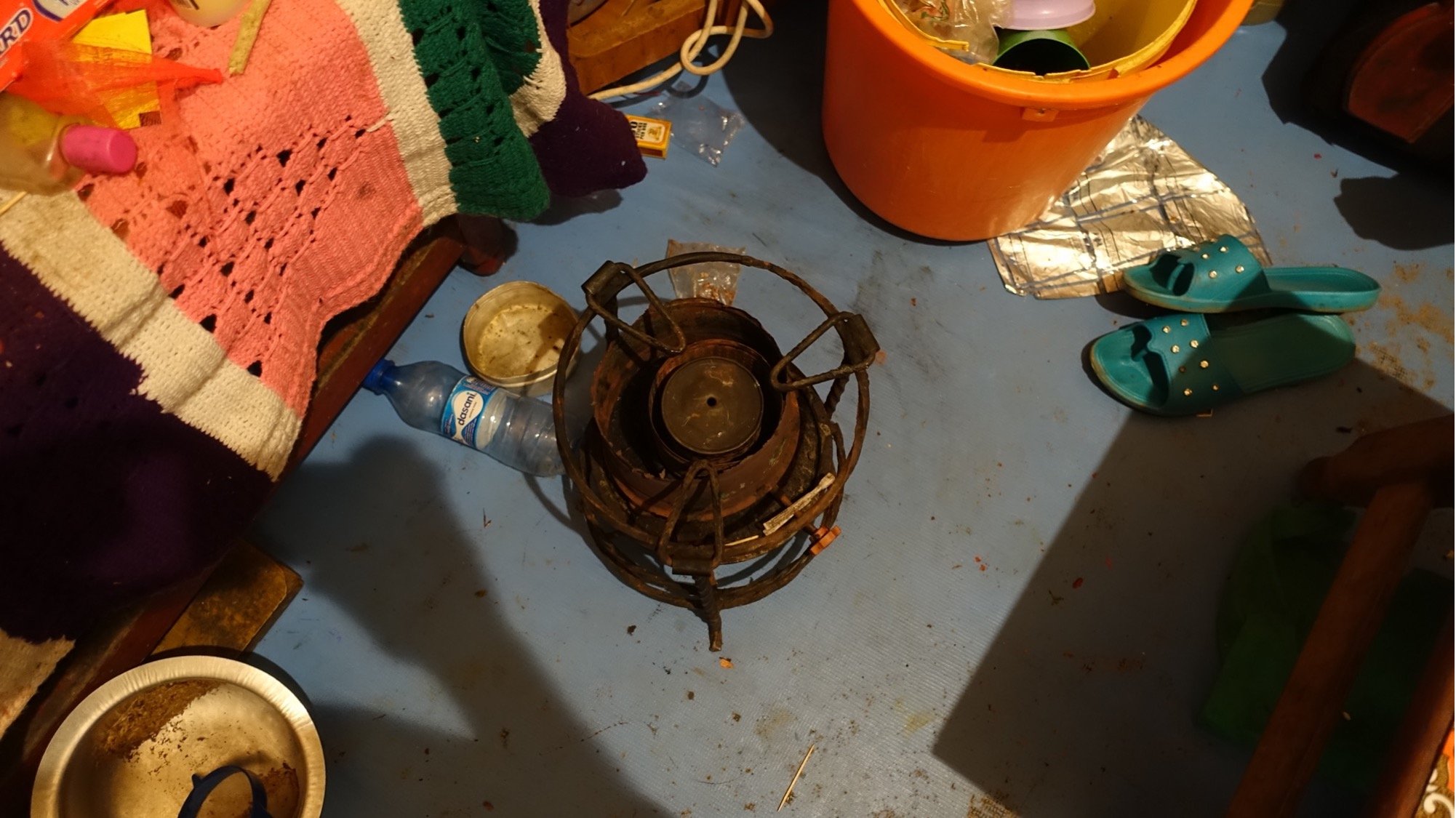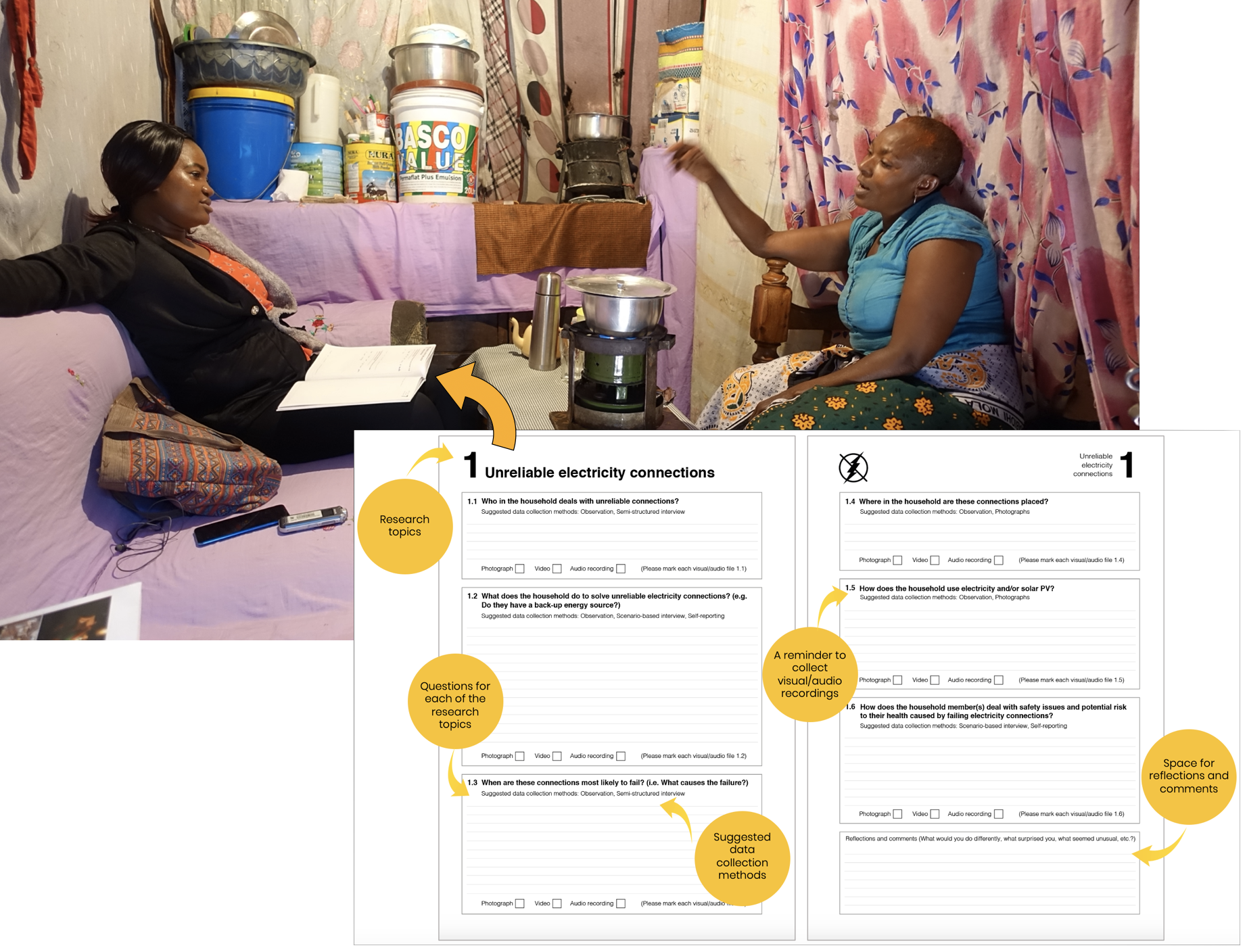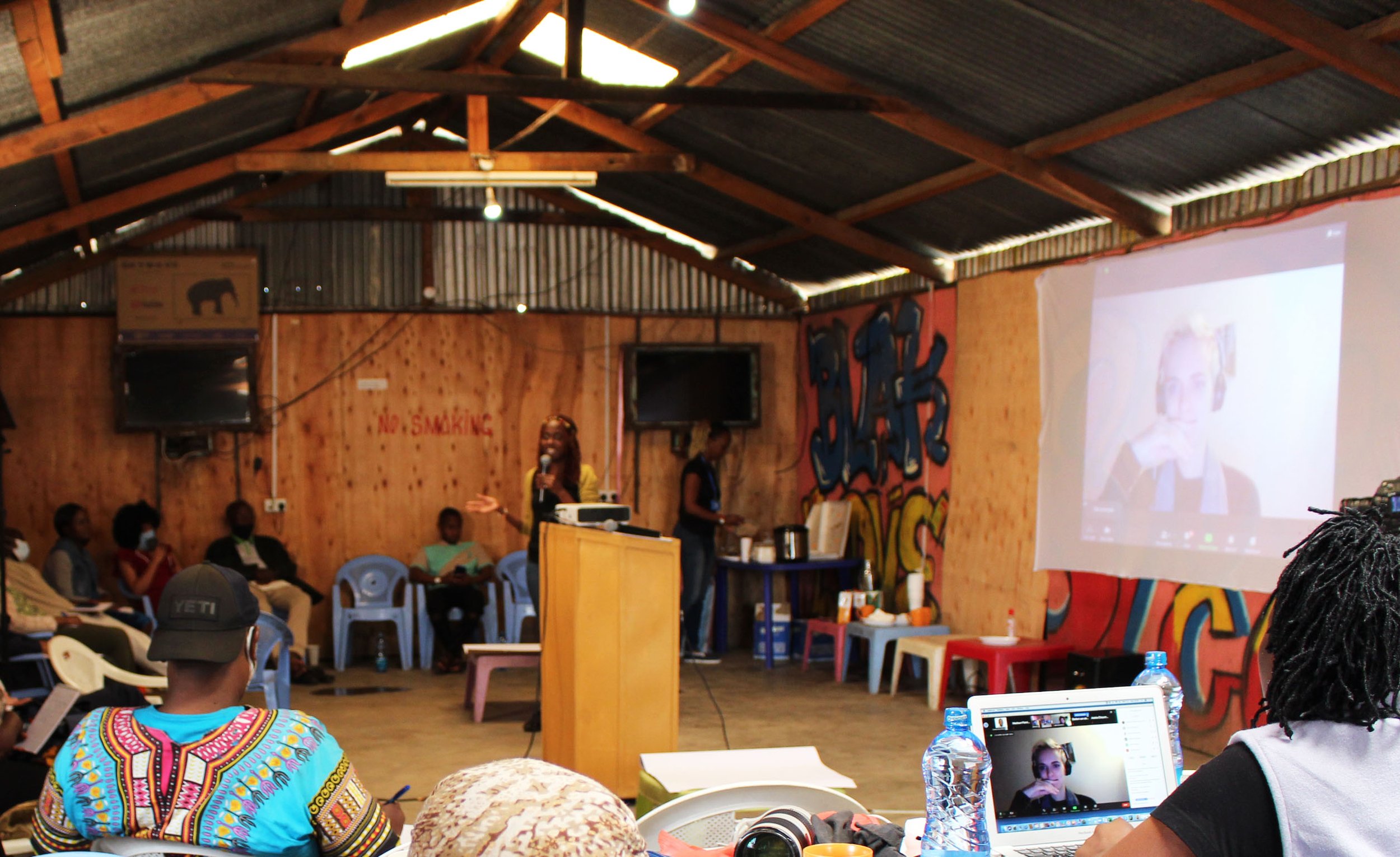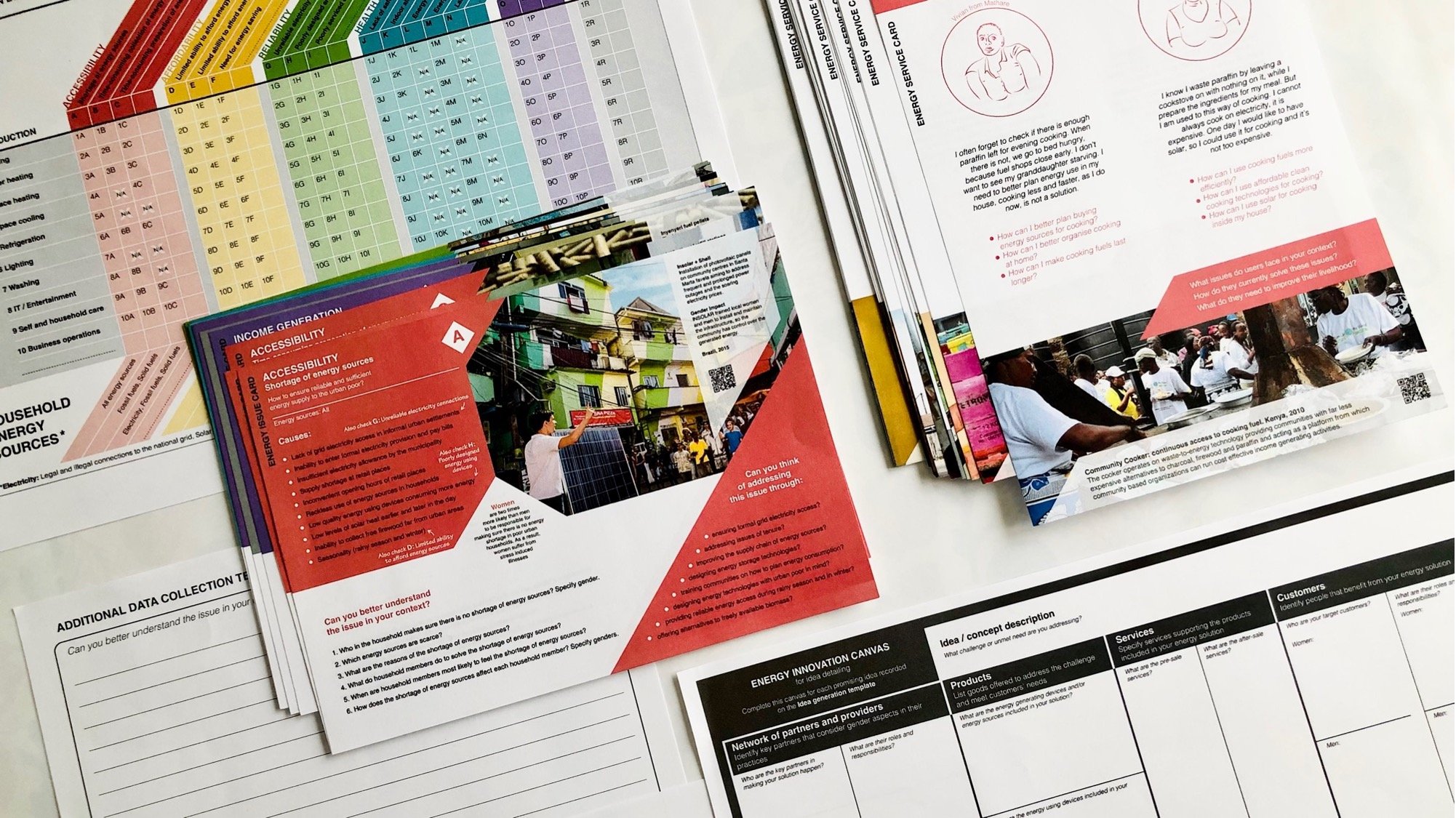GENS | Supporting the development of gender-inclusive energy innovations in informal settlements
Co-design Social inclusion Design tool
Overview
In collaboration with the multidisciplinary team from the UK, Kenya and South Africa, I collected and analysed energy-related issues faced by women and men from informal settlements in sub-Saharan Africa. As the project outcome, I developed a co-design toolkit to help local stakeholders along the energy value chain co-create gender-inclusive energy innovations.
Context
Sub-Saharan Africa
Duration
2020-2022
The Problem
238 million people in sub-Saharan Africa live in informal urban settlements with inadequate or non-existing access to energy. Those energy products and services that are available to low-income households often do not meet the specific needs of their major users - women. This project was initiated to help bring relevant energy innovations to sub-Saharan Africa’s informal settlements by understanding and addressing the real needs of the users.
The Goal
I aimed to develop practical design support for gender-inclusive energy innovations in informal settlements.
To meet their energy needs, residents of informal settlements use unreliable energy products and fuels, threatening the health and safety of their major users - women
The Process
Research Question 1: What existing resources supporting the development of gender-inclusive energy innovations are readily available?
Method 1: Desk research: qualitative analysis of 20 existing gender-energy nexus toolkits, handbooks and training manuals issued between 2004 and 2019.
Duration: 4 weeks
Informal urban settlements are overlooked in existing gender-energy nexus toolkits, handbooks and training manuals: 19 out of 20 of them focus on rural areas
Research Question 2: How do energy companies based in sub-Saharan Africa develop products and services for low-income urban users? How, if at all, do they consider the needs of different genders?
Method 2: Semi-structured interviews with companies working in sub-Saharan Africa’s energy sector.
Participants: 16 private companies from (mostly) Kenya and South Africa.
Duration: 6 weeks
None of the interviewed companies is familiar with existing resources - like “The Empowered Entrepreneur Training Handbook” - addressing gender in the energy sector
Research Question 3: How do women and men use energy in informal settlements? What issues do they face and what are their energy needs? (in collaboration with country teams)
Method 3: Planning and supervision of the remote rapid ethnographic fieldworks in Mathare (Kenya) and Groenheuwel (South Africa) informal settlements.
Participants: Residents from 20 households in Mathare and 20 households in Groenheuwel.
Duration: 8 weeks
Method 4: Visualisation of ethnography findings using personas, user journeys and opportunity maps.
Duration: 2 weeks
Because of the Covid-19 travel restrictions, the ethnographic fieldworks have been carried out by local youth who used a bespoke Fieldwork Diary to record data
Research Question 4: Who are the stakeholders involved and what are their roles in supporting the development of gender-inclusive energy innovations? (in collaboration with country teams)
Method 5: Co-implementation of two stakeholder engagement and problem identification workshops.
Participants: Mathare and Groenheuwel community activists, local researchers, policymakers and representatives from local energy companies.
Duration: 2 weeks
Method 6: Three online training sessions on energy issues and design thinking, aiming to build capacity and provide agency to energy users.
Participants: 15 young people from Groenheuwel informal settlement.
Duration: 3 weeks
One of the hybrid stakeholder engagement workshops took place in the Mathare community centre at the heart of the informal settlement
Research Question 5: How to build a practical and effective toolkit to support the development of gender-inclusive energy innovations?
Method 7: Analysis and synthesis of the research findings to generate insights for the GENS Co-design Toolkit.
Duration: 3 weeks
Method 8: Development of the first version of the GENS Co-design Toolkit. Co-working sessions with the team to gain feedback.
Duration: 3 weeks
Method 9: Multi-stakeholder idea generation workshops to test the GENS Co-design Toolkit.
Participants: Mathare and Groenheuwel community activists, local researchers, policymakers and representatives from local energy companies.
Duration: 4 weeks
The workshop in Nairobi was eye-opening for their participants: policymakers, Mathare community activists, researchers and companies co-created energy solutions
The Outcomes
A practical GENS Co-design Toolkit which teaches its users about energy-related issues in informal urban settlements and helps generate ideas for gender-inclusive energy innovations.
Established multi-stakeholder partnerships for the co-creation of energy innovations.
Capacity building of local communities to identify and address their energy needs.
Raised awareness of gender equality and issues faced by the bottom of the pyramid populations.
The GENS Co-design Toolkit helps understand energy issues in informal settlements and ideate energy solutions with different gender needs in mind
Credits to the team: Dr Fabrizio Ceschin, Prof Josephine Kaviti Musango, Dr Amollo Ambole, Dr Betty Karimi Mwiti, Christer Anditi, Peris Njoroge, Andrew Earl
Interested in the GENS Co-design Toolkit or the ethnographic Fieldwork Diary ? Drop me a line: aine@petrulaityte.com
Publications
Petrulaityte, A., Ceschin, F., Musango, JK., Mwiti, BK., Anditi, C. and Njoroge, P. (2022) 'Supporting the development of gendered energy innovations for informal urban settlements: GENS Codesign Toolkit for multistakeholder collaboration'. Sustainability, 14 (10).
Mukama, M., Musango, JK., Smit, S., Ceschin, F. and Petrulaityte, A. (2022) 'Development of living labs to support gendered energy technology innovation in poor urban environments'. Technology in Society, 68.
Batingue, B., Musango, JK., Ceschin, F., Ambole, A., Smit, S. and Petrulaityte, A. (2021) 'Modelling gendered innovation for the security of energy services in poor urban environments'. Systems Research and Behavioral Science, 39 (2).
Musango, JK., Smit, S., Ceschin, F., Ambole, A., Batinge, B., Anditi, C., Petrulaityte, A. And Mukama, M. (2020) 'Mainstreaming gender to achieve security of energy services in poor urban environments'. Energy Research and Social Science, 70.






